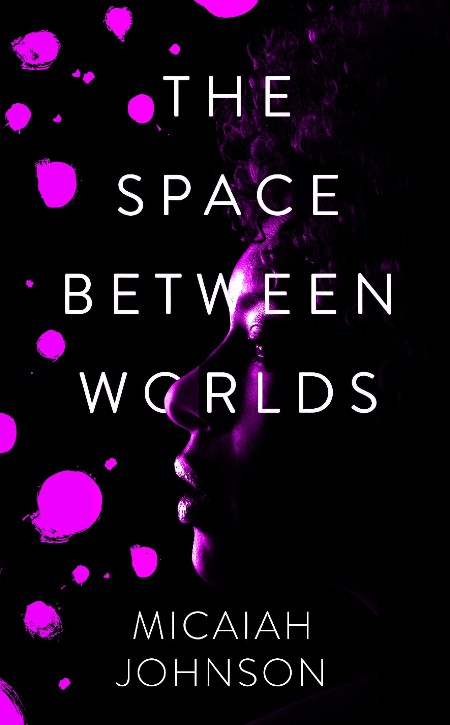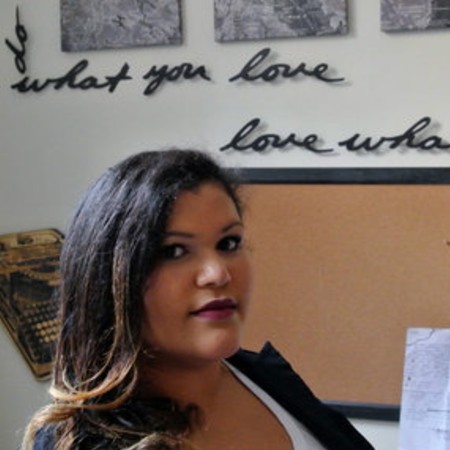
Belonging somewhere, truly belonging somewhere, is a powerful thing.
It can provide the kind of safety and security of which adventurous, well-lived lives are made, it allows us to explore and express who we are without fear of sanction or condemnation, and it instils a sense of shared humanity through which powerful connections are forged and lives changed.
Cara, the protagonist of Micaiah Johnson’s The Space Between Worlds, spends her days on missions to the 380 visitable sister earths of the multiverse courtesy of brilliant inventor Adam Bosch (who has grown rich off his unique invention) is well aware of the multitudinous benefits of knowing you are part of somewhere and connected to people that matter, but as someone who routinely finds herself displaced from the world she calls home (aka “Root Earth”), she is also painfully cognisant of the harsh reality that even the strongest sense of belonging can be fractured by the smallest of changes and by secrets so corrosive they can’t help but eventually out.
While she never meets herself on her visits to these alternate earths due to the fact that it is only possible to travel to an earth where your doppelgänger or “dop” is dead (failure to observe that non-negotiable rule leads to messy, rather fatal consequences) – thus avoiding messy and psychically disruptive existential run-ins – she is constantly battling with the fact that she doesn’t really belong in the city that is now her home.
In this dystopian future earth, where technology is advanced but humanity is as socially and morally backward as ever much of the time, people either live in the glossy, clean, rarefied surrounds of the cities like Wiley, or in the smoky, dusty surrounds of placed like Ashtown and the Rurals.
“I’ve been in Wiley City for six years as a resident. In four more, I’ll be pronounced citizen. For now, I’m nowhere. I live in Wiley but I’, legally still Ashtown’s, and neither has a claim on me that counts. It’s a space between worlds, no different from the star-lined darkness I stand in when I traverse. The darkness is worth it, because I know what waits on the other side.” (P. 18)
The two places are like day and night.
While Wiley is all clean living, crime-free days and bucolic nights with full employment and benefits, Ashtown is a hard-scrabble existence, a place ruled by a warlord emperor known as Nik Nik whose army of Runners enforce a fair but unforgiving system of justice on a populace for whom every breath is a fight and every meal a hard won vicgtory.
Cara is from Ashtown and has no wish to return there in any way, shape or form which is why she must finish her 10 years of employment in Wiley to qualify as a citizen with all the attendant benefits; she is constantly reminded of what she could return to when she visits her sister Esther, a member of a pan-religious order which attempts civility and richness of belief to a town where people have very little time for anything but survival.
Things are grim, but Cara, while stonily resolute and ready with a hard, quick-witted rebuff to the likes of her handler Dell, who is as Wiley and rich as you can get, remains tenuously optimistic than she can make her life as a Traverser work and thus, make the rest of her hard-won life stay very much in place.
She is also changing in ways that she never foresaw, learning compassion and justice, integrity and mercy from people like Esther and her Grandfather-like fellow employee Jean, a kindly man with an extensive family and the sort of strong moral compass that Cara needs to handle some fairly intense and immense challenges coming her way.

The Space Between Worlds in many transformative and affecting ways, a novel about how belonging and love can powerfully make and reshape you in ways that being alone can never manage.
It is also aware of the fact that belonging can feel tenuous, a perception that, real or not – it is both in the case of Cara who is more secure than she believes but not as secure as she would like to feel – has a substantial impact on how we approach life and the many challenges it presents.
For Cara, these challenges are both personal – she has feelings for Dell but are they reciprocated? Why is she dead in all but eight of the 380 accessible earths? – and societal with the death of one of her surviving dops unravelling a whole thread of dangerous secrets and others’ dark, murderous agendas, the kind which threaten not only her place in the world but the integrity and viability of the entire world.
It is within Cara’s power to do something about this, and there’s no question that she will, but the big question hanging over her agonised deliberations, and infusing the entire length of The Space Between Worlds with a sense of real moral foreboding, is what it will cost her.
Will she lose her new place in the city sun? Will she lose Dell (assuming she ever gains the rich heiress in the first place)? And will her past rise up to smash the bonds which bind her to a present which is far better than she could ever have imagined.
“I am rot to the people I love, and the world keeps giving me gifts I don’t deserve. This apartment, this life, the sound of Jean’s laugh, the smell of Dell’s hair—all memories of things I never deserved to experience in the first place. And how do I repay the world for my luck? By influencing everything with my darkness …” (P. 252)
The great power in The Space Between Worlds and what makes it such engrossing, utterly immersive reading, is the way in which it asks some big moral questions in the midst of an ever-escalating race to a finish line which Cara knows she must cross but which she would rather avoid going anywhere in a perfect world.
Of course, life on Root Earth, and indeed any of the worlds to which this plucky young heroine traverses, are far from perfect and so Cara is never under any illusions that she has been given can be just as easily taken away.
But Cara, who is cantankerous, sweet, funny and hard, optimistic and brutally pragmatic, and very, very human, with the glories and flaws than entails, wants so desperately to hang on to everything she has got, to the place in which she belongs enough that it is kind of, sort of, not really, feels at home.
What gives The Space Between Worlds such a moving vibrancy is that we know from early on that Cara has too much integrity and too much truth to her to ever hang onto anything when she knows what it is costing others to keep it in her hands.
She is a singularly memorable and deeply likeable character precisely because she grapples hard with the challenges she faces and because you know, you just know, she will make the right decisions even as her heart also mourns the costs her actions will involve.
The Space Between Worlds is a brilliant book – full of action and adventure and possessed of a strong heart and moral backbone, all of it infused into a protagonist who is so ruthlessly pragmatic but idealistically hopeful too, who wants the very best for herself and others but only if it comes to her in a way that does not involve the suffering of others or the diminution of the place to which she calls home.
Watching her struggle with these massive dilemmas is a privilege and a joy, making The Space Between Worlds of the best, most thoughtful and affectingly human reads of 2020.